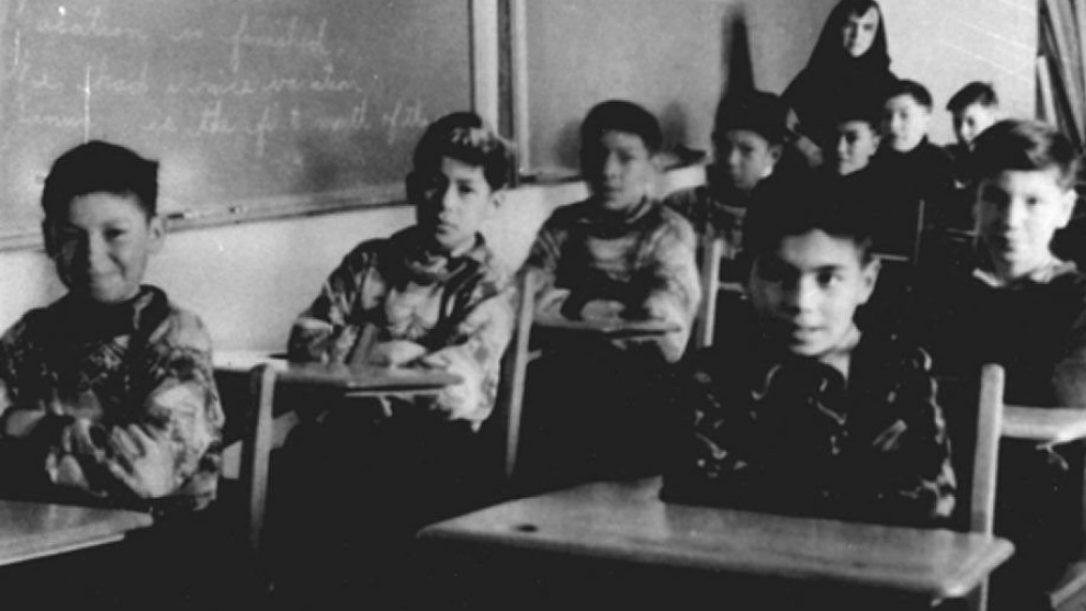|
Ottawa seeks top court ruling on residential school records
By Alex Boutilier
OTTAWA—The federal government is asking the Supreme Court to overturn a decision that gives residential school survivors the ultimate say in what happens to their testimony. Ottawa has asked the Supreme Court to determine if residential school survivors’ testimony count as “government documents” and should remain archived with the federal government. If the court agrees, it would overturn a recent decision by the Ontario Court of Appeal, which agreed survivors should have the opportunity to archive their testimony with the arm’s-length National Centre for Truth and Reconciliation, a hub at the University of Manitoba that serves as the permanent repository for records related to the residential school system. It would also mean the fate of the documents will rest with the government, not the survivors. If survivors do not decide to have their testimony archived, the Ontario Superior Court ruled the testimony should be destroyed within 15 years. It’s a complex case that touches on Canada’s obligation to recognize the horrors committed in the residential school system, while respecting the survivors right to privacy. “The significant issue at stake is the proper balance between protection of and respect for individual privacy and confidentiality and the public interest in the necessary preservation of government records identified . . . as having historical and archival value,” reads the federal government’s submission to the Supreme Court, obtained by the Star. “The Attorney General of Canada seeks leave to appeal this decision on the basis that these issues are of public importance and historic significance.” The documents in question include transcripts and decisions from the Independent Assessment Process, the mechanism through which survivors’ gave their testimony and were assessed for government compensation. In 2014, a judge ruled that the testimony, which detailed the physical and sexual abuse suffered by students, and the horrific conditions they were forced to endure, would be destroyed in 15 years, unless survivors opted to have it permanently archived with the national centre. In a split decision in April, the Ontario Court of Appeal upheld that decision. In their submission to the Supreme Court, the federal government leans heavily on the dissenting position in that case, arguing that the documents and testimony are and have always been considered “government records.” Officials from Indigenous and Northern Affairs Canada, speaking to provide background information on the condition they not be named, told the Star that the motivation behind the appeal is to preserve the historical records of the abuse inflicted at the residential schools. But the officials conceded that, if their appeal is accepted by the Supreme Court, the ultimate fate of residential school survivors’ testimony would rest in the hands of the government, rather than the survivors themselves. The officials added that, because the documents would be subject to the Privacy Act, the testimony could not be used for any other purpose than it was intended — to settle compensation disputes — unless permission is granted to use it for other purposes. The Star reported last week that the federal government has taken a broad view as to what counts as Independent Assessment Process documents. NDP MP Charlie Angus, who has been advocating for survivors of Ontario’s notorious St. Anne’s school, accused the government of using the protections for survivors’ testimony to keep secret internal records of how Ottawa has handled the residential school file. In a written statement provided to the Star, media relations for Indigenous and Northern Affairs Canada said that preserving the testimony of survivors is “the right thing to do.” “Survivors and their families have long sought that this dark chapter in Canadian history be on the record,” read the statement, attributed to Indigenous and Northern Affairs Canada Minister Carolyn Bennett.
|
.
Any original material on these pages is copyright © BishopAccountability.org 2004. Reproduce freely with attribution.
